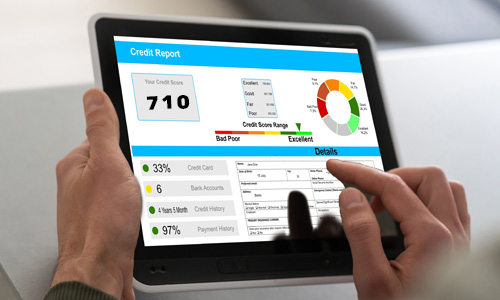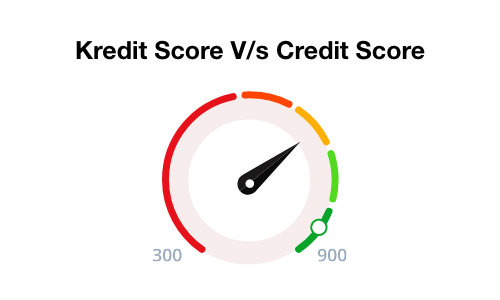How Does a Balance Transfer Affect Your Credit Score
A balance transfer allows you to transfer your existing debt into a new account, which offers a lower interest rate and better terms and conditions. Typically, this facility can help you pay off your debt conveniently and quickly. However, a balance transfer can affect credit score, changing the credit utilisation rate.
In simple terms, if you refrain from adding more debt into your account while you are trying to pay off a previous loan, your credit score will likely increase over time.
| Check Your credit Score for Free in UAE |
Would a balance transfer negatively affect my credit score?
Yes, a balance transfer can affect credit score positively when executed wisely. But, on the contrary, there is a certain situation when this facility might negatively affect your credit profile. Find about them below:
-
Hard credit enquiry
While opting for a balance transfer, the lender will conduct a hard enquiry on your credit report if you apply for a new credit card. Note that each hard enquiry lowers your credit score by some points. However, note that the change is not significant. If you are confused about does credit card balance transfer affects credit score, consider remembering the following points:
- Hard credit can affect your credit score by only around 10%.
- Every hard enquiry might not lower your credit score.
You should be careful while applying for new credit. However, as long as you do not overdo it, your credit score remains safe.
-
Shortened credit history
Your credit history length is another factor that might form your creditworthiness. For example, if you choose to close an old credit account through a balance transfer, you might end up losing some credit history that was built through the years. This could, in turn, lower your credit score.
-
The onset of more debt
Remember that a balance transfer will favour you only if you carefully execute the process. If you open a new credit card account and transfer your existing debt to it but continue to take on new credit, you might have to face serious financial issues. This could also hurt your credit score. If you continue to add to your credit, your utilisation ratio will ramp up. This will then lead to a decreased credit score.
Would a balance transfer improve my credit score?
Note that balance transfer and credit score improvement is not linked directly. Opting for a balance transfer will not uplift your credit score by itself. It will simply make some positive changes to your credit report, which might be beneficial for you.
That said, here are a few examples of how balance transfer affects credit score and can improve it:
-
Lower credit utilisation
If you manage to move your debt to an account with a higher credit threshold, it will bring down your overall credit utilisation ratio. Now, a lower credit utilisation ratio means you are using a small portion of your available limit. Again, this demonstrates that you are not a credit-hungry individual.
Having said that, experts recommend maintaining a credit utilisation ratio of 30% or less. That means you should not use any more than 30% of your available credit.
-
Fewer accounts
Another crucial factor that affects your credit score is the number of accounts with balances appearing on your credit report. For an increased score, it is imperative to have fewer accounts. In this regard, opting for a balance transfer combines all your accounts into one, reducing the total number of accounts you own. This will positively affect your credit report.

Things to keep in mind after opting for a balance transfer
While a balance transfer can affect credit score either positively or negatively, there are a few crucial points you should remember after opting for this facility. Find them below:
- Avoid applying for new credit or making multiple hard inquiries on your credit report to increase your score.
- Note that your balance transfer credit card is useful in paying off debt. Adding more debt to it can make it more challenging for you to pay off your dues without any hassle.
- Pay your debt timely. To make this convenient, try to set a reminder for all your monthly payments. You can also set up auto payments towards such payments.
- Pay your existing debts as soon as possible. Evaluate how much money you need to put towards your monthly credit card payment, and stick with your plan. This will help you remain financially disciplined.
To sum up, if you are struggling with debt, a balance transfer could be a perfect way out for you. However, consider knowing all about how balance transfer affects credit score before taking up this decision. This will help you boost your credit score, increasing your creditworthiness in the long run.
| Credit Score for different types of Loan | |||
|---|---|---|---|
| Credit Score for Personal Loan | Credit Score for House Loan | Credit Score for Car Loan | Credit Score for Student Loan |

More From Credit Score
- Recent Articles
- Popular Articles











